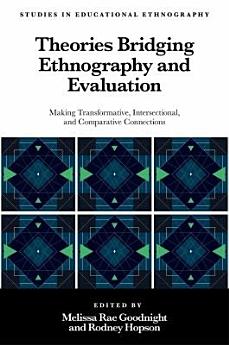Theories Bridging Ethnography and Evaluation: Making Transformative, Intersectional, and Comparative Connections
About this ebook
Chapters situate inquiry in wide-ranging theories and the contested histories and policies of contexts—whether these spaces are globally, nationally, or locally defined. Exploring essential concepts (positionality, transparency, authenticity, and reciprocity), authors analyze the philosophical, methodological, relational, and ethical dimensions of the interconnected practice of ethnography and evaluation. Authors also highlight their own experiential learning: how these concepts are forged not only from literature but also from their lived experience of doing this transformative scholarship in the United States, Palestine-Israel, and India.
Fusing interpretivist and transformative epistemologies, emphasizing both emic understandings and critical framings of social issues, Theories Bridging Ethnography and Evaluation draws upon social justice frameworks for conducting research and evaluation, including anti-racist, culturally responsive, and feminist theories.
About the author
Melissa Rae Goodnight is Assistant Professor in Educational Psychology and Global Studies at the University of Illinois at Urbana-Champaign (UIUC), USA. Additionally, she is a faculty affiliate of the Center for Culturally Responsive Evaluation and Assessment (CREA), based at UIUC.
Rodney Hopson is currently Senior Associate Dean and Professor, School of Education, American University. Most recently, he served as Professor of Evaluation in the Department of Educational Psychology, College of Education, with appointments in the Educational Policy and Organizational Leadership and the Center of African Studies, the University of Illinois Urbana-Champaign, USA.





